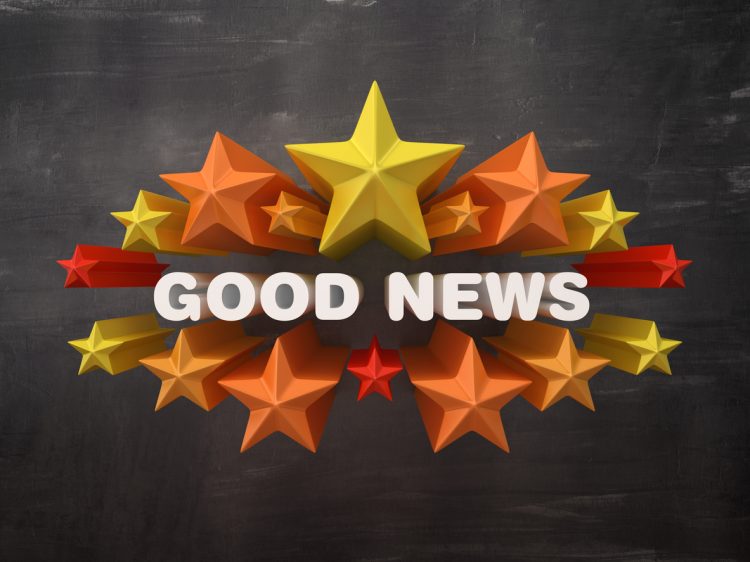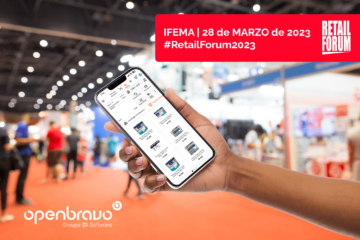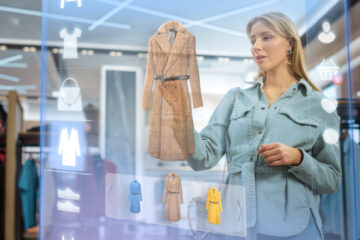Openbravo’s Good News in Retail This Week: April 6

Times like these make it difficult for luxury brands to remain relevant and engage consumers, so many have taken the call for medical supplies as a lifeline for their brand.
Luxury Brands Act Quickly to Re-tool Production
LVMH, the luxury brand owner of Louis Vuitton, Guerlain, Dior and Givenchy, amongst others, has pledged to deliver 40 million masks and announced that it will re-purpose three of its cosmetics factories in France to manufacture hand sanitizing gel, planning to produce as much as 12,000 tonnes a week, which it will then supply free of charge to French hospitals.
Of course, many brands are finding they are able to contribute in more ways than one. LVMH has teamed up with luxury brands Bulgari and Fendi for multiple initiatives in Italy and has launched several more initiatives in the US as well.
Burberry is both re-tooling its Yorkshire factory to make non-surgical gowns and masks while funding critical research towards a vaccine at Oxford University. Beauty brand L’Occitane has already donated soap and moisturizers in various affected countries and plans to ramp up production of hand sanitizer from 15,000 liters last week to 70,000 liters.
French ready-to-wear brand Zadig & Voltaire announced that 20 percent of sales from its online store will be donated to the emergency aid fund for Parisian hospitals whilst reassuring customers that the company is enforcing a higher standard of sanitary measures in its warehouses to protect its employees. And to further remove friction from making online purchases, the company has also waived delivery fees and extended its return policy.
And finally, Nike has not only teamed up with Oregon Health & Science University to prototype and manufacture face shields in the coming weeks, but the company is also using its global voice to promote social distancing in an emotional ad campaign featuring global sports stars who make a public plea to #playfortheworld by #playinginside. In addition, many retailers have been looking to Nike as a “coronavirus playbook” because of its experience in China.
Essential Retailers Step Up on Multiple Fronts
Essential retailers may be experiencing a boom in sales, but they are dealing with unprecedented online orders and extraordinary demands on their employees and supply chain. These retailers are thinking not only about meeting the heightened needs of their customer, but also their employees and ways they can help during the crisis.
In addition to making hospital donations, Carrefour has offered workforce bonuses, installed 12,000 protective plexiglass screens at their checkouts, and procured 10 million protective face masks for its employees in France. The retailer has also introduced dedicated hours for medical employees, free food baskets for lorry drivers, and paying fisherman the same prices for catch as before the crisis. Meanwhile, food retailer E.Leclerc is also looking out for its customers against price gouging by freezing prices on over 4,000 goods.
Health & beauty retailer Boots UK now offers more options for medical staff as well as customers, keeping pharmacies and several Opticians operational as well as increasing production of hand sanitizer around the world, donating toiletries to hospitals, and coordinating more pharmacy deliveries to hospitals and vulnerable people. In addition, the stores, and presumably the company laboratories, will enable coronavirus testing for NHS workers.
And even though its stores may not be open to the public, Spain’s most prominent department store, El Corte Ingles has donated bedding for the provisional hospital set up at Madrid’s IFEMA convention center while continuing to operate to deliver online orders from its grocery and department stores across the country.
Is Now the Right Time for Innovation?
On a final note, perhaps the most surprising beneficiary of supply chain disruption are innovators like Ynsect, a French start-up that offers an alternative supply of animal feed made from insect protein, where potential customers may be more open to considering alternative and ultimately more sustainable options as the traditional food supply chain is disrupted.
Meanwhile, Decathlon’s new respirators are now reaching those who need it most during this crisis. Following a swift and successful collaboration with Italian design firm to convert its snorkeling mask into emergency ventilators, Decathlon further announced last week that it will donate all its Easybreath masks to hospitals and carers.
Some of the biggest retailers have been able to completely change their supply chain within a matter of weeks, demonstrating the kind of change that is truly possible. How many other retailers will take this opportunity to make their supply chain more agile, more sustainable, and ultimately more resilient for the world to come?
Stay home, stay well, and stay tuned for Openbravo’s Good News in Retail next week!



